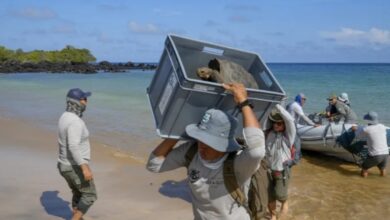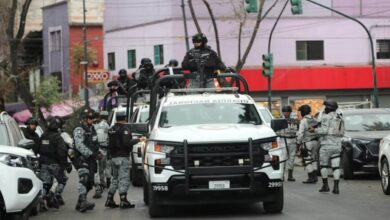TECHO helps locate marginalized settlements in Latin America
Listen this article
The Latin American NGO has launched a mapping application that helps determine the incidence factors of the most marginalized populations in the region

The non-governmental organization, TECHO, directed by 'La compañía de Jesús', recently made a mapping of the most marginalized settlements in different parts of Latin America to make an x-ray of the situations of poverty that the most forgotten live; all this through an innovative application.
Leer en español: TECHO ayuda a localizar asentamientos marginados de América Latina
TECHO, which has been working since 1997 on the claim of people living in extreme poverty and illegally settled on other people's land, reported Deutsche Welle (DW), the initiative to accelerate their humanitarian work.
From technology to social reality
TECHO has recently implemented a web application that allows locating, through satellite images and machine learning, the possible locations of informal settlements, understanding them as places where people and families go to build illegal dwellings on other people's land or private property, according to it is referred by the Inter-American Development Bank.
The application, named AP-LatAm, created by the Argentine entrepreneur Fedérico Baylé, aims to identify through satellite recognition, the areas where the settlements are located. For this, "the computer recognizes patterns such as the material or the arrangement of the roofs or if the streets are paved or not"; assured Baylé to DW.
This innovation, linked to the volunteering of the organization, makes it possible to trace the journeys of the members to get closer to the realities lived by the settled people. The app allows to accelerate the work, "in the sense of what area to travel or which to discard, and can make the survey in the field faster", adds Baylé.
It is an important advance, taking into account that, according to UN-Habitat, there are about 113.4 million people living in illegal settlements; a panorama that suggests that the advances of the metropolises of the region are totally unequal and do not benefit those who experience this serious situation.
María Jesús Silva, director of the Center for Social Research at TECHO, told Agencia EFE that "through the satellite image, we can determine where they are, what their topographic characteristics are and the access points we can reach"; being aware of the growth of cities and the conception that settlements are not only located in suburban or semi-rural areas.
In general, reaching settlements allows TECHO volunteers to recognize housing, seismographic, and electrical risk factors; as well as inspect access to basic services, living conditions, etc.
For now, the mapping in Latin America has been done in Buenos Aires, Guatemala City, and Asunción, with significant advances in Lima, beginning in Mexico City and other major capitals of the region; a titanic challenge.
You may also be interested: Cinema para Everyone: the app for people with visual and hearing disabilities
Pillars to give solutions
"This information is completely invisible, in many cases, informal settlements are not counted and governments do not have offices dedicated to identifying them". The settlements are the epicenter of a social catastrophe: there is an absence of basic services, irregular land tenure and segregated from the formal education and health system ", says María Jesús Silva to DW.
TECHO International requires governments to recognize settlements in order to find an in-depth analysis of the factors and incidents that influence their upkeep, permanence, and survival, in order to work together with organizations in the joint construction of housing policies that vindicate this and other vital rights to the people who experience these conditions.
On the other hand, TECHO also wants to reach settlements in order to achieve the promotion of citizen participation in the creation and identification of community organizations within them.
"It is very important to promote the self-organization of the communities and work together with them", says Eva Dick, leader of the German Institute for Development Policy (DIE) in one of its most recent studies entitled "Urban governance of forced displacement: premises, requirements and challenges in light of new humanitarian trends".
Adding that governments can not pretend to cover in full the prevailing need for housing, since "historically we have seen that a relatively small part of the population has benefited from it". It is necessary to have different approaches: promote the self-management of the inhabitants. In any case, this should not mean that the State is going backward in its task of improving the housing situation in informal settlements".
LatinAmerican Post | Jorge Becerra
Translated from "TECHO ayuda a localizar asentamientos marginados en América Latina"





